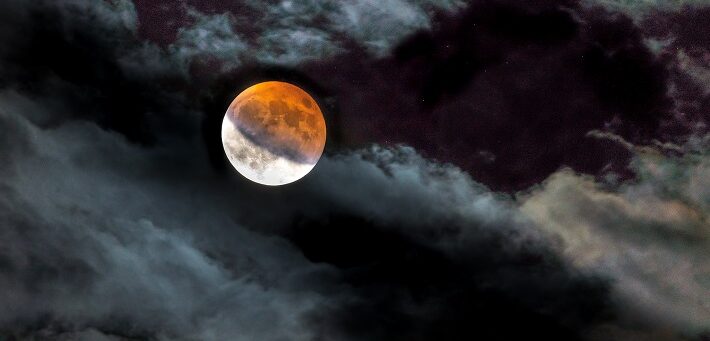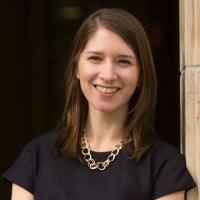Commentary on Jeremiah 33:14-16
Advent is a season for feeling out of kilter.
It is a period of waiting in the darkness. It is a season in which we are caught between joyful expectation and the harsh realities of the present condition while we wait for the promise to be fulfilled. And the discipline of this season puts the church at odds with contemporary American culture, in which the holiday season consists of bright lights and celebrations and packages tied with neat bows. There is no room for darkness and little patience for prayerful expectation when holiday carols blare from every speaker and the neighborhood is glowing with displays of lights. Yet ironically, this experience of being out of sync with our surroundings may attune us more deeply to the nature of Advent. In Advent, we live in the unsettling tension between what is and what will be.
The prophet Jeremiah speaks to a community that is acutely aware of this tension. Jerusalem has been completely devastated in the Babylonian invasion of 587 BCE, and the inhabitants of Israel have been scattered from their homeland, living as conquered people in Babylonian captivity. For those living in exile, their way of life has been completely overturned. Their sense of security has been violated. They have no idea if they will live to see their home again. And this leads to theological questions: where is God in the midst of this? Why did such devastation happen? Is God present in exile? Will God allow them to return home again? What happened to the covenant with David? Is the grace of the covenant promises made long ago still operative for this generation and for their children?
The experience of exile is one of profound dissonance. This generation lives in the wide gap between the reality of what is and the promise of what will be. In fact, the hardship of the present reality must make the covenant promises seem far from reach. As the psalmist laments, “By the rivers of Babylon, there we sat down and there we wept when we remembered Zion … How could we sing the Lord’s song in a foreign land?” (Psalm 137:1, 4). Jeremiah offers a vision of a new reality: “The days are surely coming, says the Lord, when I will fulfill the promise I made to the house of Israel and the house of Judah … In those days Judah will be saved and Jerusalem will live in safety” (Jeremiah 33:14, 16a). We should not underestimate what a daring proclamation this is. In the face of devastation, with all evidence to the contrary, Jeremiah insists that God’s promises are certain.
The sign of this covenant promise is the righteous branch of David. The oracle, which is an expanded version of an oracle found earlier in the book (see Jeremiah 23:5-6), promises the restoration of the Davidic monarchy and the Levitical priesthood (see Jeremiah 33:17). The covenant with David that promises an eternal kingship and God’s perpetual love (see 2 Samuel 7:8-17) remains reliable. The following oracles seem to anticipate the people’s resistance. The reality of this promise seems hard to believe, given the present circumstances. Could God’s covenant with David be broken? No more than the sun would stop rising and setting: “Thus says the Lord: If any of you could break my covenant with the day and my covenant with the night, so that day and night would not come at their appointed time, only then could my covenant with my servant David be broken” (Jeremiah 33:20-21). The Davidic covenant is as certain as the cycles of day and night; it is part of the regular workings of the cosmos.
Jeremiah’s oracle imagines an alternative reality: the restoration of Israel, the practice of justice and righteousness, and flourishing life in the land that God has promised. Yet the prophet does not simply cast utopian visions of life as it once was or as the people desire it to be. Empty promises are little comfort for homelessness, broken dreams, and tarnished memories.
Rather, this alternative reality is grounded in a claim about God’s faithfulness — it will be called “The Lord is our righteousness” (Jeremiah 33:16). Bridging the chasm between the present reality and the promised future is only possible by an act of faith that God’s righteousness will triumph. Jeremiah suggests that confidence in God’s righteousness enables belief in a new reality.
In Advent, the church proclaims an alternative reality that grows out of confidence in God’s righteousness. The promise of God’s righteousness both convicts and makes new. Advent invites us to name the places in our lives and society that are at odds with the divine vision of justice and righteousness. There may be a wide gap between what is and what we wish were so. And yet the promise of Advent is that the Lord is our righteousness. This promise allows us to proclaim an alternative reality in which all things will be made new.


November 29, 2015